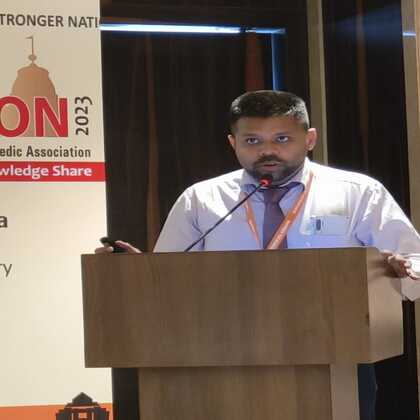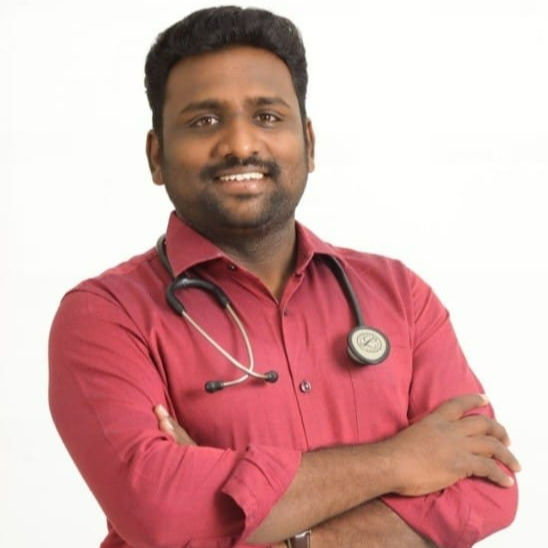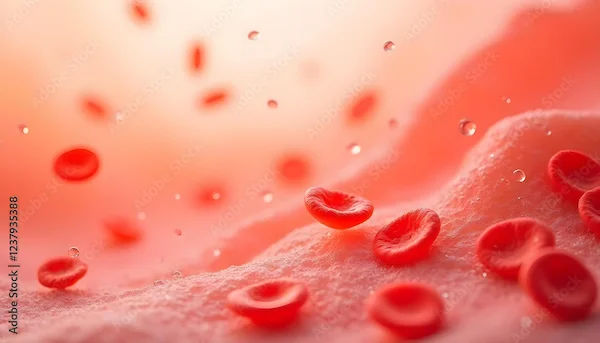Avascular Necrosis: Symptoms, Causes and Treatment
Learn about avascular necrosis, including its symptoms, causes, diagnosis and treatment options. Understand how reduced blood flow affects bones and ways to manage the condition.


Introduction
Avascular necrosis (AVN), also known as osteonecrosis, is a painful condition that occurs when the blood supply to a bone is disrupted, leading to bone tissue death. This condition most commonly affects the hip joint but can also impact other bones like the knees, shoulders, and ankles. If left untreated, AVN can lead to severe joint damage and disability.
Understanding the symptoms, causes, and treatment options can help patients manage the condition effectively. Let’s explore everything you need to know about avascular necrosis in simple terms.
What Are the Symptoms of Avascular Necrosis?
In the early stages, avascular necrosis may not cause any symptoms. However, as the condition progresses, you may experience:
- Joint pain – Initially mild but gradually worsening, especially when putting weight on the affected joint.
- Stiffness – Difficulty moving the joint freely.
- Limited range of motion – Trouble walking or lifting your arm if the hip or shoulder is affected.
- Pain at rest – Discomfort even when not using the joint.
If you notice persistent joint pain that doesn’t improve with rest, consult a doctor for further evaluation.
Consult an Orthopaedic Surgeon for the best advice
What Causes Avascular Necrosis?
AVN occurs when the blood supply to a bone is interrupted. Some common causes and risk factors include:
1. Trauma or Injury – A fracture or dislocation can damage blood vessels, reducing blood flow to the bone.
2. Long-term Steroid Use – High doses of corticosteroids (often used for conditions like asthma or arthritis) can increase the risk of AVN.
3. Excessive Alcohol Consumption – Heavy drinking can weaken bones and reduce blood supply.
4. Medical Conditions – Diseases like sickle cell anemia, lupus, and diabetes can contribute to AVN.
5. Radiation Therapy – Treatment for cancer may affect bone health.
6. Decompression Sickness – Also known as "the bends," this affects deep-sea divers and can lead to AVN.
How Does Avascular Necrosis Affect Your Health?
If untreated, AVN can lead to:
- Bone collapse – The affected bone may weaken and break down, causing severe pain and deformity.
- Arthritis – The joint may become damaged, leading to chronic pain and stiffness.
- Loss of mobility – Severe cases may require joint replacement surgery.
Early diagnosis and treatment can help slow down or prevent further damage.
How Is Avascular Necrosis Diagnosed?
Doctors use several tests to diagnose AVN, including:
- X-rays – To detect bone changes in later stages.
- MRI (Magnetic Resonance Imaging) – The most sensitive test for early detection.
- CT Scan or Bone Scan – Helps assess bone damage in detail.
If you’re experiencing persistent joint pain, booking a consultation with a specialist through Apollo 24|7 can help you get timely diagnosis and treatment.
Treatment Options for Avascular Necrosis
Treatment depends on the stage and severity of the condition. Options include:
1. Non-Surgical Treatments (Early Stages)
- Medications – Pain relievers (NSAIDs) and osteoporosis drugs may help slow bone loss.
- Lifestyle Changes – Reducing alcohol intake, avoiding high-impact activities, and maintaining a healthy weight.
- Physical Therapy – Exercises to improve joint mobility and strength.
- Assistive Devices – Using crutches or a cane to reduce pressure on the affected joint.
2. Surgical Treatments (Advanced Stages)
- Core Decompression – A procedure to remove part of the inner bone to relieve pressure and improve blood flow.
- Bone Grafting – Transplanting healthy bone to support the damaged area.
- Osteotomy – Reshaping the bone to shift weight away from the damaged part.
- Joint Replacement – In severe cases, replacing the damaged joint with an artificial one may be necessary.
Tips for Managing Avascular Necrosis
Lifestyle changes and medical care can help slow disease progression. Here are some tips for managing avascular necrosis:
- Follow your doctor’s advice – Stick to prescribed medications and therapies.
- Stay active (with caution) – Low-impact exercises like swimming or cycling can help maintain joint function.
- Eat a bone-healthy diet – Include calcium-rich foods (milk, yoghurt, leafy greens) and vitamin D (eggs, fish, sunlight exposure).
- Avoid smoking and excessive alcohol – These can worsen bone health.
When to See a Doctor?
If you have persistent joint pain, especially if you have risk factors like steroid use or previous injuries, seek medical help early. Early intervention can prevent complications.
You can easily book a consultation or schedule a diagnostic test through Apollo 24|7 for expert guidance and personalized treatment.
Final Thoughts
Avascular necrosis is a serious but manageable condition. Recognizing symptoms early, understanding risk factors, and following medical advice can help preserve joint function and improve quality of life. If you or a loved one is experiencing unexplained joint pain, don’t ignore it; consult a specialist today.
Consult an Orthopaedic Surgeon for the best advice
Consult an Orthopaedic Surgeon for the best advice

Dr. Anil Pradeep Jadhav
Orthopaedician
23 Years • MBBS MS (Ortho)
Nashik
Apollo Hospitals Nashik, Nashik
(25+ Patients)
Dr. Anil Sharma
Orthopaedician
42 Years • MBBS, MS Orthopedics
New Delhi
AAKASH MEDSQUARE, New Delhi

Dr. Manoj Dinkar
Orthopaedician
15 Years • MBBS, Dip (Orthopaedics)
New Delhi
THE DOCTORS NESST, New Delhi

Dr. Mriganka Ghosh
Orthopaedician
11 Years • MD (Physician), DNB (Orthopaedics)
Howrah
Dr Mriganka Mouli Ghosh, Howrah

Dr. Pradeep Lucas
Orthopaedician
7 Years • MBBS, Diploma in Orthopaedics, Fellowship in DFSI
Bengaluru
Revival Multispeciality Clinic, Bengaluru
Consult an Orthopaedic Surgeon for the best advice

Dr. Anil Pradeep Jadhav
Orthopaedician
23 Years • MBBS MS (Ortho)
Nashik
Apollo Hospitals Nashik, Nashik
(25+ Patients)
Dr. Anil Sharma
Orthopaedician
42 Years • MBBS, MS Orthopedics
New Delhi
AAKASH MEDSQUARE, New Delhi

Dr. Manoj Dinkar
Orthopaedician
15 Years • MBBS, Dip (Orthopaedics)
New Delhi
THE DOCTORS NESST, New Delhi

Dr. Mriganka Ghosh
Orthopaedician
11 Years • MD (Physician), DNB (Orthopaedics)
Howrah
Dr Mriganka Mouli Ghosh, Howrah

Dr. Pradeep Lucas
Orthopaedician
7 Years • MBBS, Diploma in Orthopaedics, Fellowship in DFSI
Bengaluru
Revival Multispeciality Clinic, Bengaluru
_0.webp)



